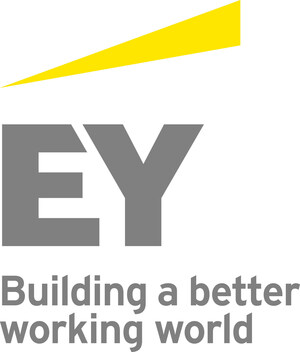- New report in collaboration with the Institute of Private Capital unearths the current status of diversity, equity and inclusion in private equity
- Private equity stakeholders agree that the scope of the challenge around diversity, equity and inclusion remains large
- Reveals ten cultural characteristics that can impede diversity, equity and inclusion across the industry
LONDON, Dec. 6, 2021 /PRNewswire/ -- Recognizing social and racial inequalities that have been highlighted by the COVID-19 pandemic and recent social justice movements, the private equity (PE) industry has set its sights on addressing diversity, equity and inclusion (DEI) with urgency and commitment, according to EY report, "Can PE win deals if it doesn't deal with DEI?". Published in collaboration with the Institute for Private Capital a research center of the University of North Carolina's Kenan Institute and Kenan-Flagler Business School – with research analysis conducted by not-for-profit organization Level20, the report identifies DEI as an existential imperative and provides data, insights and tools to help inspire assessment and action.
Sandra Krusch, EY Europe West Private Equity Leader, says:
"The private equity industry must assess the legacy cultural characteristics and processes that have historically created de facto barriers for diverse talent. Private capital has a ubiquitous presence in our global economy, giving the PE industry a distinctive opportunity to both address and improve DEI at scale, at both the organization and portfolio levels."
The business case for DEI is robust and has become impossible for PE to ignore
Challenges with diversity across finance have been well-documented, and the problem is particularly acute in PE and other alternative asset classes. As environmental, social, and governance (ESG) considerations become increasingly important for attracting capital, deals and talent, the report finds that while the PE industry is prioritizing DEI both at individual firm and industry levels, the scope remains large. Academic research and stakeholder demands support the moral imperative for PE to respond with sincerity and urgency: research suggests disingenuous attempts at DEI can have a negative impact on performance, and PE stakeholders including regulators, employees, investors and investees favor DEI for both financial and non-financial reasons.
DEI requires long-term investment and generates long-term value
The report reveals that while some organizations have made strides toward improving DEI, others are lagging behind due to a lack of awareness around DEI's relevance and impact; a lack of resources to manage and implement DEI; or a disproportionate focus on DEI at the portfolio level rather than the organizational level. Companies continue to face challenges in recruiting diverse talent due to the lack of diversity across the industry, and without a simultaneous focus on improving retention, simply hiring diverse talent is neither an impactful nor sustainable long-term approach to DEI. According to the report, organizations that have not started their DEI journeys are already well behind and risk enduring repercussions of their inaction not only from a talent perspective, but in fundraising and deal-making as well.
To help PE leaders assess their commitments, EY and the Institute for Private Capital developed the Diversity Integration Model, an interactive online tool, which uses nine data points to calculate how many years it will take for the user to achieve their diversity targets.
Greg Brown, Founder and Research Director the Institute for Private Capital,, says: "This interactive tool was constructed to help PE firms more fully understand the implications of their practices in the areas of recruitment and retention. These are the two most fundamental levers available for firms to use in their DEI efforts, and it's important to understand how they interact. DEI is a long-term effort, and some firms might be surprised at how long it will take to reach their diversity targets unless they implement substantial changes in both these areas."
Assessing PE's culture and employee lifecycle through a DEI lens
The report finds the PE industry has not sufficiently valued high-performing individuals who may not fit the traditional success prototype that is deeply embedded in PE culture and operational processes. Four of the ten cultural characteristics EY identifies in the report that have historically created de facto barriers to diverse talent in PE include insularity, a belief in meritocracy, its apprenticeship model, and its focus on building consensus. . The report recommends that PE organizations take time to self-assess at both a personal and organizational level, and provides a set of questions to help PE leaders understand the experience their diverse talent is currently having, illuminate the deficiencies that can disproportionately impact diverse talent, and takemeaningful steps to improve their experiences.
Pete Witte, EY Global Private Equity Lead Analyst, says:
"Exclusivity has been one of the hallmarks of the PE industry since its establishment, which has unintentionally limited access for underrepresented groups. Today, PE firms across the industry are intensely focused on evolving to operate more inclusively. In order to improve the state of DEI within their organizations and the industry more broadly, PE leaders' organizations must commit to dismantling their success prototypes and improving both their recruitment and retention strategies with the experiences of diverse talent in mind."
To view the full report, click here.
Aparna Sankaran
EY Global Media Relations
+44 (0)207 480 245082
aparna.sankaran@uk.ey.com
Logo - https://mma.prnewswire.com/media/708904/EY_Logo.jpg




Share this article